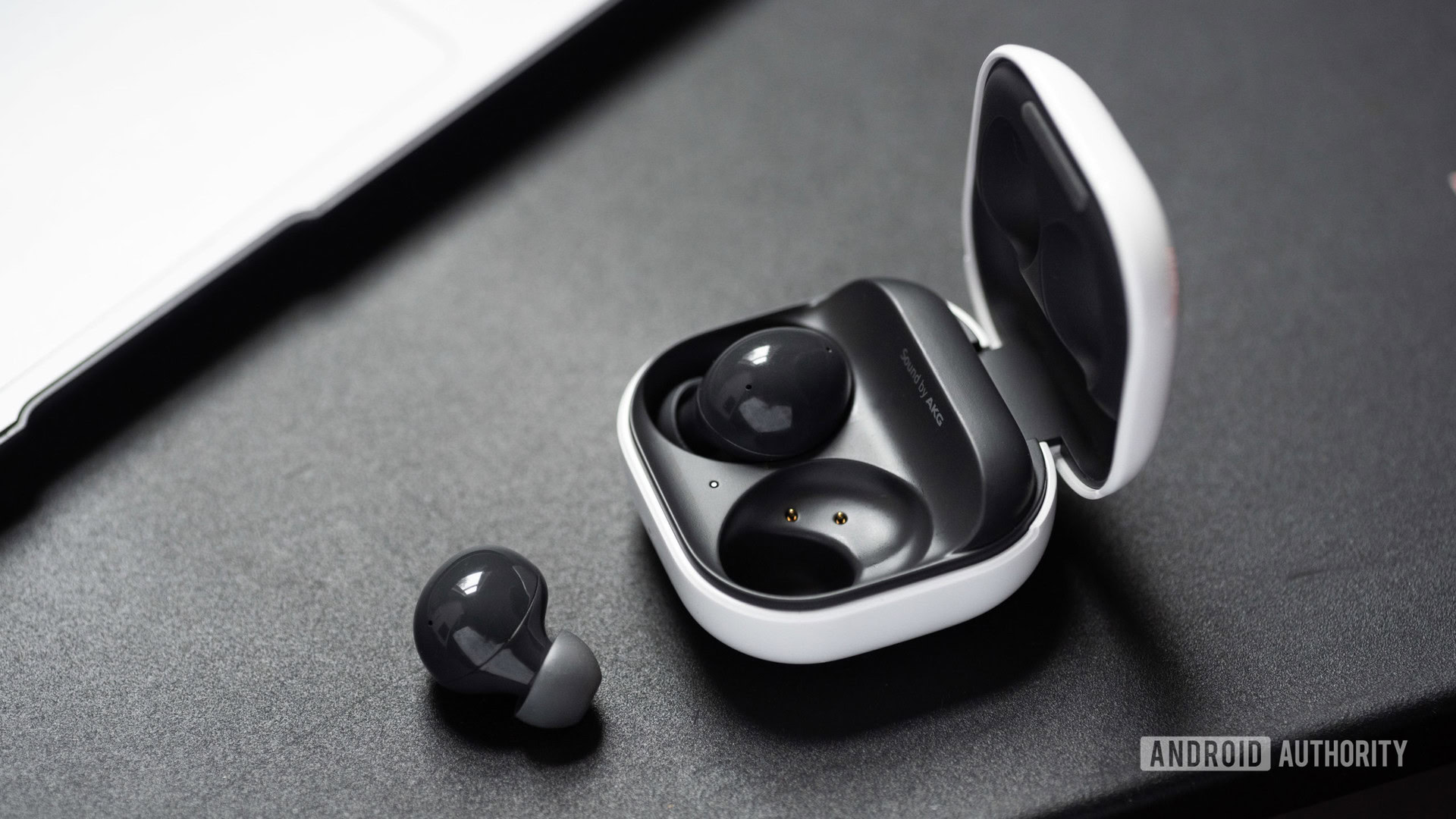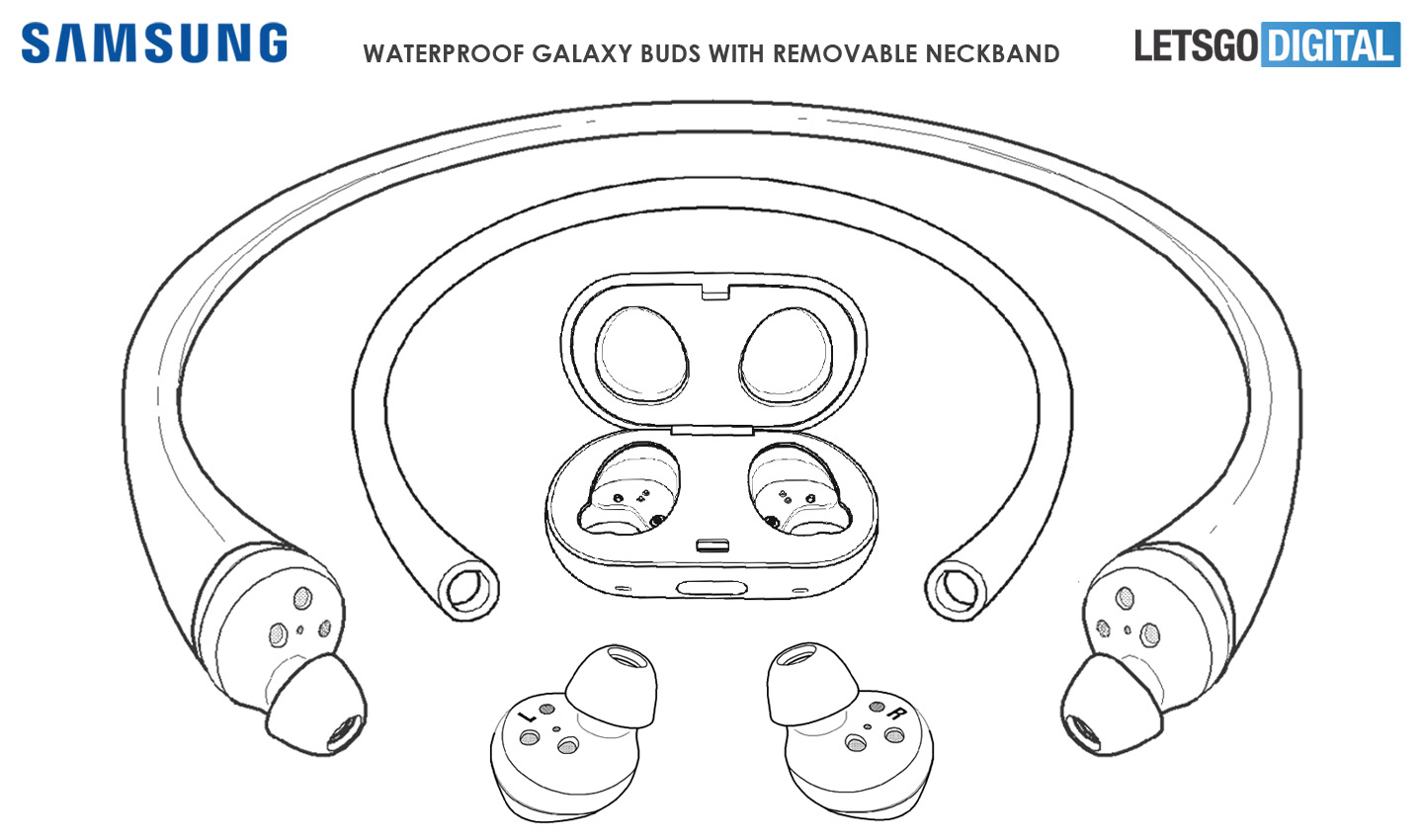Affiliate links on Android Authority may earn us a commission. Learn more.
Samsung imagines Galaxy Buds with a unique swim-proof design
September 13, 2021

- Samsung is possibly building a pair of Galaxy Buds with a removable neckband.
- The unique true wireless buds are designed for underwater use.
Samsung is considering a pair of hybrid (if you can call them that) truly wireless Galaxy Buds that can be used for swimming. Folks over at LetGoDigital have come across a Samsung patent for waterproof Galaxy Buds with a removable neckband.
Samsung’s truly wireless Galaxy Buds are generally comfortable to wear, but you can’t really jump into the pool with them. Why? Because firstly, most Galaxy Buds models are not completely waterproof. The recently released Galaxy Buds Pro and Galaxy Buds 2 are IPX7 rated, the highest water-resistant rating you can get on any of Samsung’s TWS earbuds. That means they are resistant to clean water for a maximum of 30 minutes, up to 1 meter. Any longer or deeper than that and you risk damaging the earphones. Samsung also explicitly recommends you don’t use the buds for swimming.
The second, possibly more practical, reason for not being able to swim with any of the Galaxy Buds is that they are completely wireless. You may end up losing a bud or both in the pool. Adding a detachable neckband to the Galaxy Buds could solve this problem.

The utility patent describes and shows a pair of true wireless earbuds with multiple built-in microphones, sensors, and a two-way speaker. They also include touch controls. The unique extra accessory is a hollow, flexible neckband that can attach to the buds for swimming. The back of the earphones fixes onto the neckband at each end, making them more stable while maintaining their wireless connectivity.
Samsung may also make certain health information accessible with such earbuds. For instance, users may be able to measure their burnt calories, speed, and momentum.
It’s unclear if Samsung is also planning to up the IP rating on these patented Galaxy Buds. Nevertheless, this is just at the patent stage for now. As promising as they sound, there’s no guarantee if Samsung will ever bring them to market.
Thank you for being part of our community. Read our Comment Policy before posting.